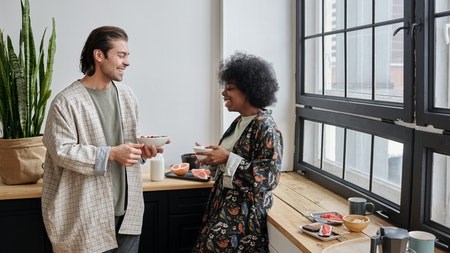Co-living, a new-ish take on accommodation, is gaining momentum across the world as an innovative model to embrace - or elbow nudge – that could very well support the new normal way of living we now find ourselves in, in terms of affordability, accessibility and functionality. Although one might conjure up visions of hippie-type seedy communes of the 1970s, modern co-living brings a smart and appealing solution to a new-found, progressive property market, be it for investor or resident, and particularly now for tenants who find themselves unable to honour their rentals during the Covid crisis.
Sebastian van Greunen, Development Manager at Flyt Property Investments says that we should see this upgrade of communal living enjoy a re-surge of popularity in South Africa that will provide a post-Covid living option which will also bridge the gap for urban residents looking for homes that provide secure micro-spaces, shared living areas and common spaces at affordable prices, while providing slightly larger private areas for independent living too.
Ironically, whilst we live in a connected world, there is a feeling of isolation - social distancing, if you will, and as such young professionals, millennials, digital nomads, creatives entrepreneurs and students are moving towards accommodation that embraces a sense of community and a shared economy, but in a safe haven. This concept also works well for remote workers looking for temporary, short-term accommodation or a few nights a week when in town on business. These ‘global citizens’ are looking for a place that feels like home, which is private and cultivates a sense of security, that creates continuity in terms of community, whilst also being inclusive.
Van Greunen states that there has definitely been an increase in rentals in the co-living space, with millennials representing the largest share of the market: “Their particular, flexible lifestyles of living, working and playing are shaping the industry as a whole.” He adds that the concept includes the aging population whose rising healthcare costs are also nudging them to consider the co-living model.
You’ll find these urban rental apartment communities popping up in key suburbs throughout South Africa, providing excellent investment and rental opportunities that are affordable and flexible. These well-designed models, like Eaton Square in Diep River, for instance, deliver innovative common spaces, fully equipped co-working areas, restaurants and coffee shops, and compact, efficiently designed apartments which have their own kitchen and living areas.
Additionally, flexible rental options allow residents the freedom to choose how long they wish to stay, whether it’s a few days, a few months, or longer; and the fully-serviced aspect allows for ramped-up hygiene and sanitation standards, along with more frequent and improved housekeeping and cleaning practices.
Across all age groups, this co-living concept is proving to be a popular option which, along with affordability and the latest technology, will soon become the real estate investment preference in alternative living. In a fast-paced world with a constantly changing landscape, co-living provides the perfect “plug & play” model so that you can afford to pay your rent, and get on with living.





